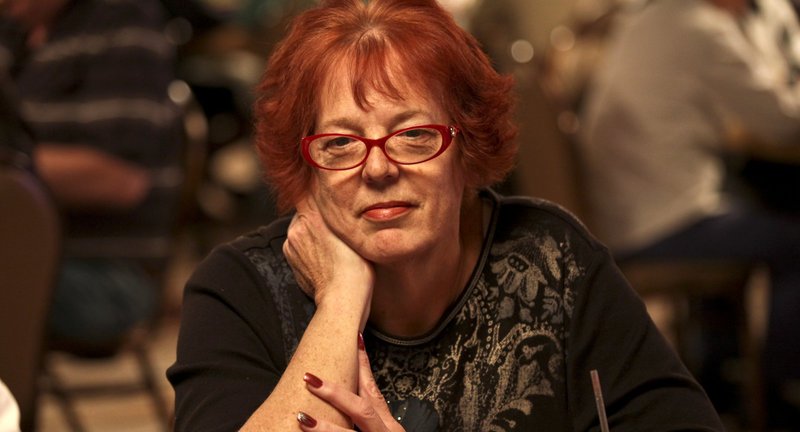






You Are the Tournament Director… Make A Decision!by Linda Johnson | Published: Apr 24, 2019 |
|
|
Card Player Magazine, available in print and online, covers poker strategy, poker news, online and casino poker, and poker legislation. Sign up today for a digital subscription to access more than 800 magazine issues and get 26 new issues per year!
As one of the original founders of the Tournament Directors Association (TDA), I have always been interested in tough poker tournament decisions. Sometimes decisions are black and white, while other times the tournament director must think outside of the box. The following incident happened at a final table I was watching.
There were five players remaining in the tournament. The under-the-gun player (Player A) raised preflop, the next player folded, and the button (Player B) called. Both blinds folded so it was heads-up going to the flop. The flop was A-10-9 rainbow. Player A made a continuation bet of about half the pot. Player B responded by saying, “all-in” and placed some of his chips in the pot.
 Thinking that Player A had said call, Player B then tabled his cards, revealing that he had an A-J. Everyone else at the table (including me) knew that the original bettor had clearly not yet acted on the all-in bet. The small blind, not in the hand, then quickly covered the exposed cards with both of his hands. Player A announced that he had seen only one of the two exposed cards – the jack- and requested that the tournament director come to the table and reveal the other card.
Thinking that Player A had said call, Player B then tabled his cards, revealing that he had an A-J. Everyone else at the table (including me) knew that the original bettor had clearly not yet acted on the all-in bet. The small blind, not in the hand, then quickly covered the exposed cards with both of his hands. Player A announced that he had seen only one of the two exposed cards – the jack- and requested that the tournament director come to the table and reveal the other card.
I want you to pretend you are the tournament director and have been called to make a ruling on whether or not Player A was entitled to see both of the exposed cards. By the way, I have changed my original opinion and there is no clear right or wrong answer here. In fact, I can certainly make a case for whichever way the tournament director rules on this one. I have polled about 20 tournament directors regarding how they would rule and their answers are about 50-50. Again, please stop for a minute and think about what decision you would make before you read any farther.
My original thinking was that in the interest of tournament integrity and fairness, Player A should not be allowed to see Player B’s other exposed card. However, after giving it more thought, I changed my mind and would have allowed him to see both exposed cards for the following reasons.
First of all, Player B clearly made a mistake by showing his hole cards before the action was complete. By covering up the exposed cards, the small blind had assisted Player B in rectifying his error. This violates the “one-player-to-a-hand” concept. If the small blind had not covered the cards, Player A would have seen them.
To make matters worse, Player A only saw the jack and since the board was A-10-9, Player B could have had something like Q-J for an open-ended straight draw. This complicated Player A’s decision and made it even tougher because if the card that wasn’t exposed was anything other than an ace, Player A’s pocket kings would have been in the lead.
My ruling in this case would be that Player B made a mistake and even though it wasn’t intentional, he should have had to pay for that mistake by allowing Player A to see his cards.
Next, would you as tournament director assess a penalty to anyone involved in the hand? My answer is no. However, I certainly would have warned the small blind that he should not touch another player’s cards and I would have explained the one-player-to-a-hand rule. I also would have given Player B a warning and let him know that if he exposed his cards again before action was complete, he would receive a penalty.
TDA rule no. 68 states that “exposing cards with action pending may result in a penalty but not a dead hand.”
Note: I’m in favor of giving warnings rather than penalties in cases where players have made mistakes unintentionally or because they didn’t know the rules.
So, what happened in this real-life scenario? The tournament director refused to let Player A see the other exposed card and Player A subsequently made the correct decision and folded.
Now, let’s play poker. ♠
Linda Johnson is a WSOP bracelet winner and hosts tournaments, seminars, and charity events. In 2011, she was inducted into the Poker Hall of Fame. She is a partner in Card Player Cruises, and invites you to cruise with her on any of the upcoming Card Player Cruises trips. Please contact her at [email protected] with questions or comments.
Features
The Inside Straight
Strategies & Analysis